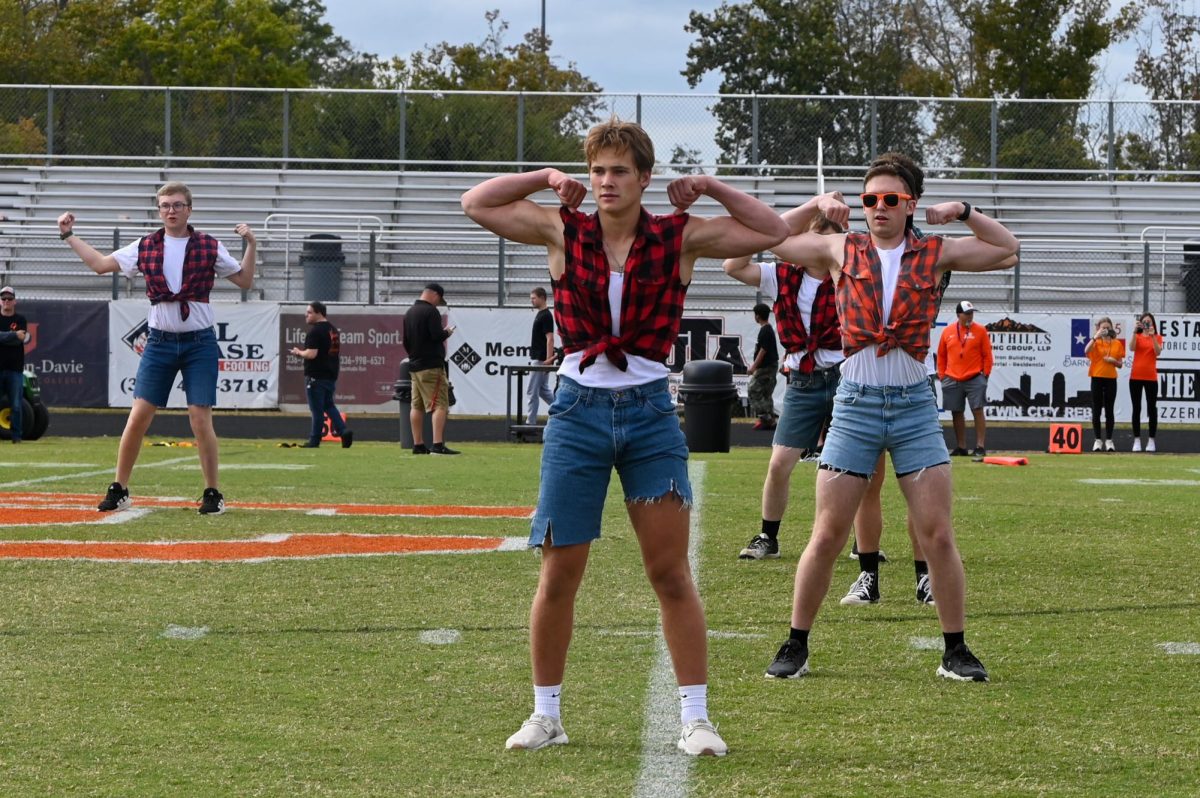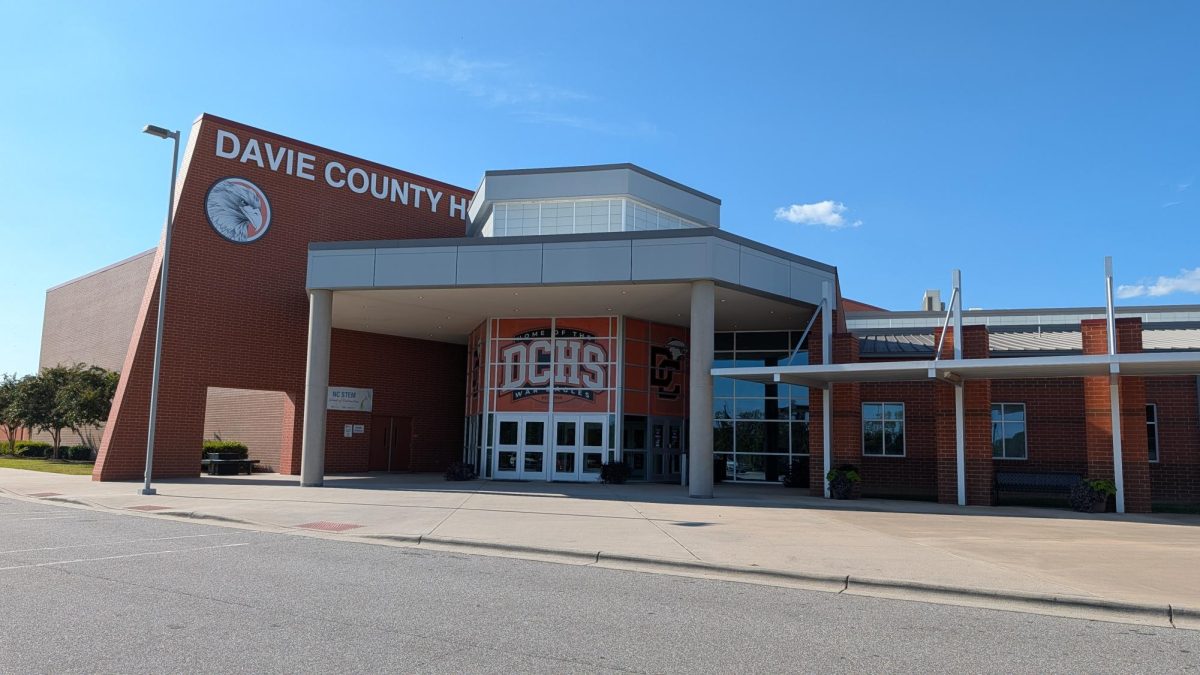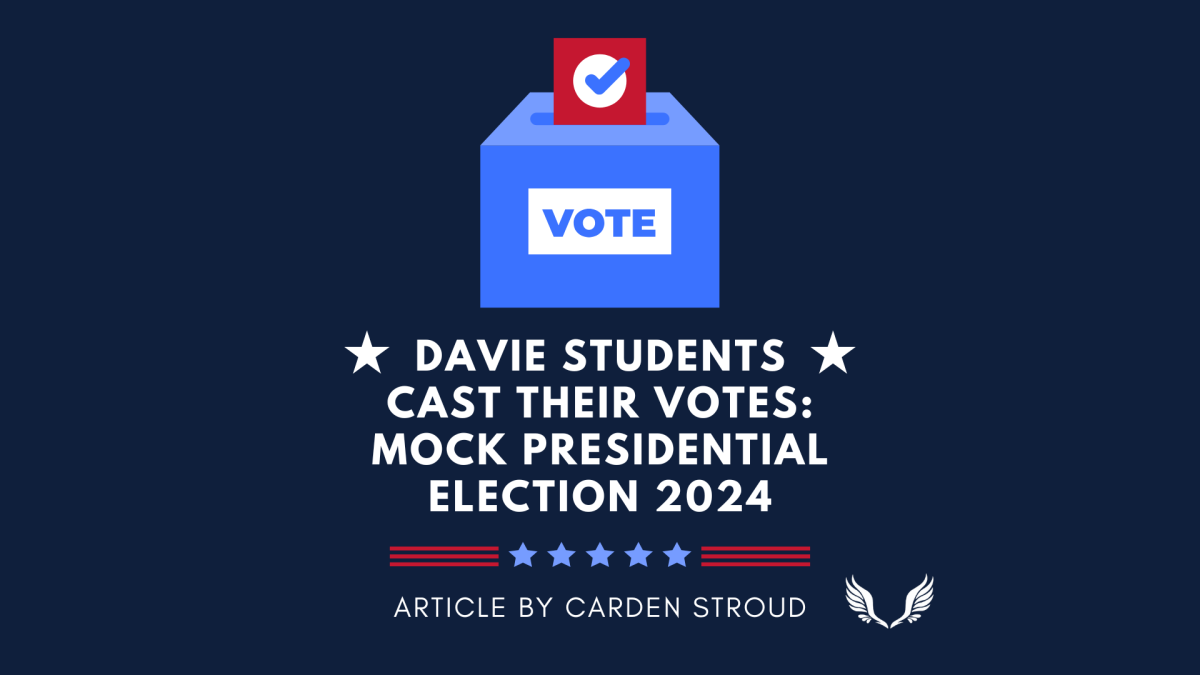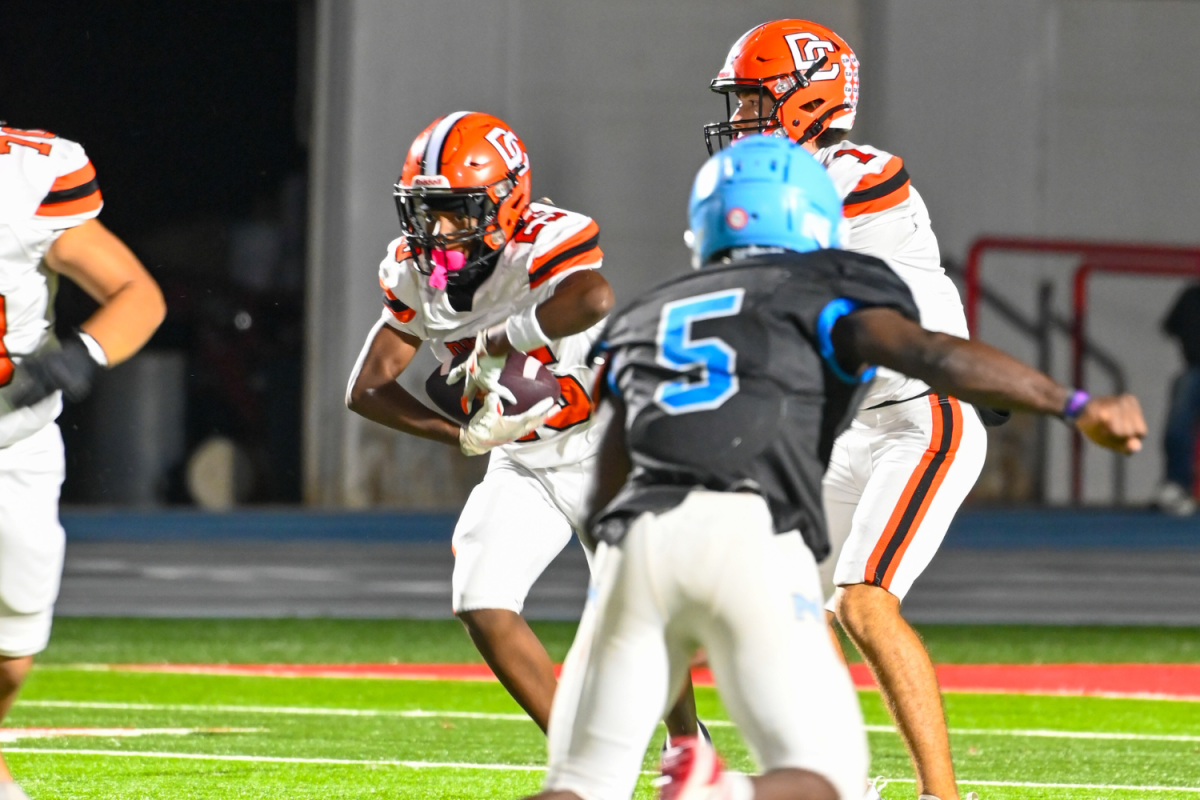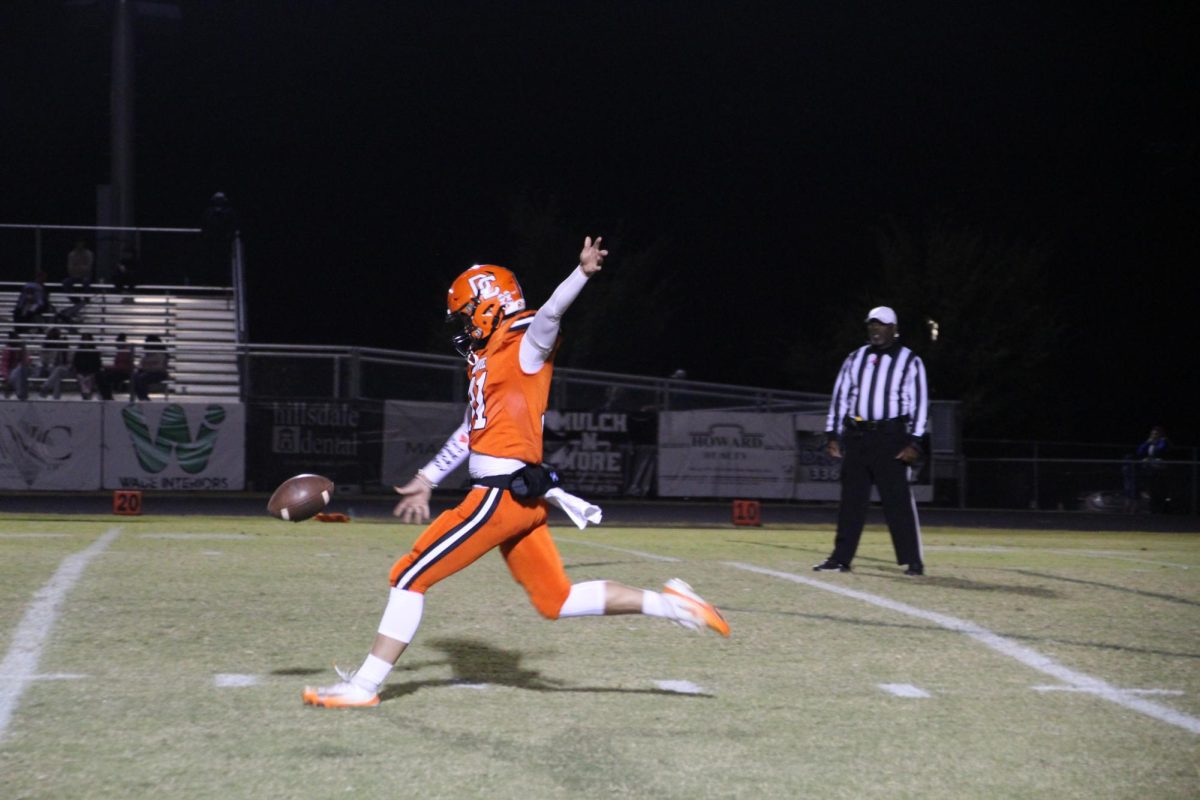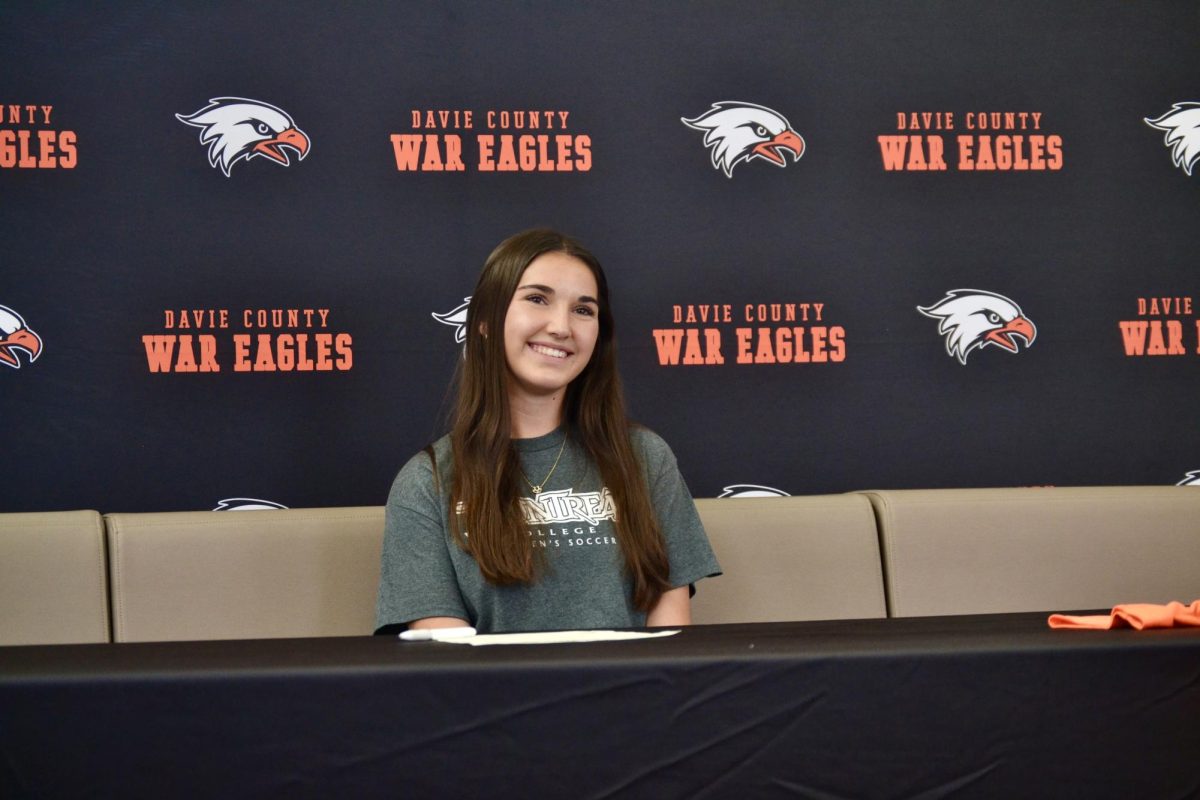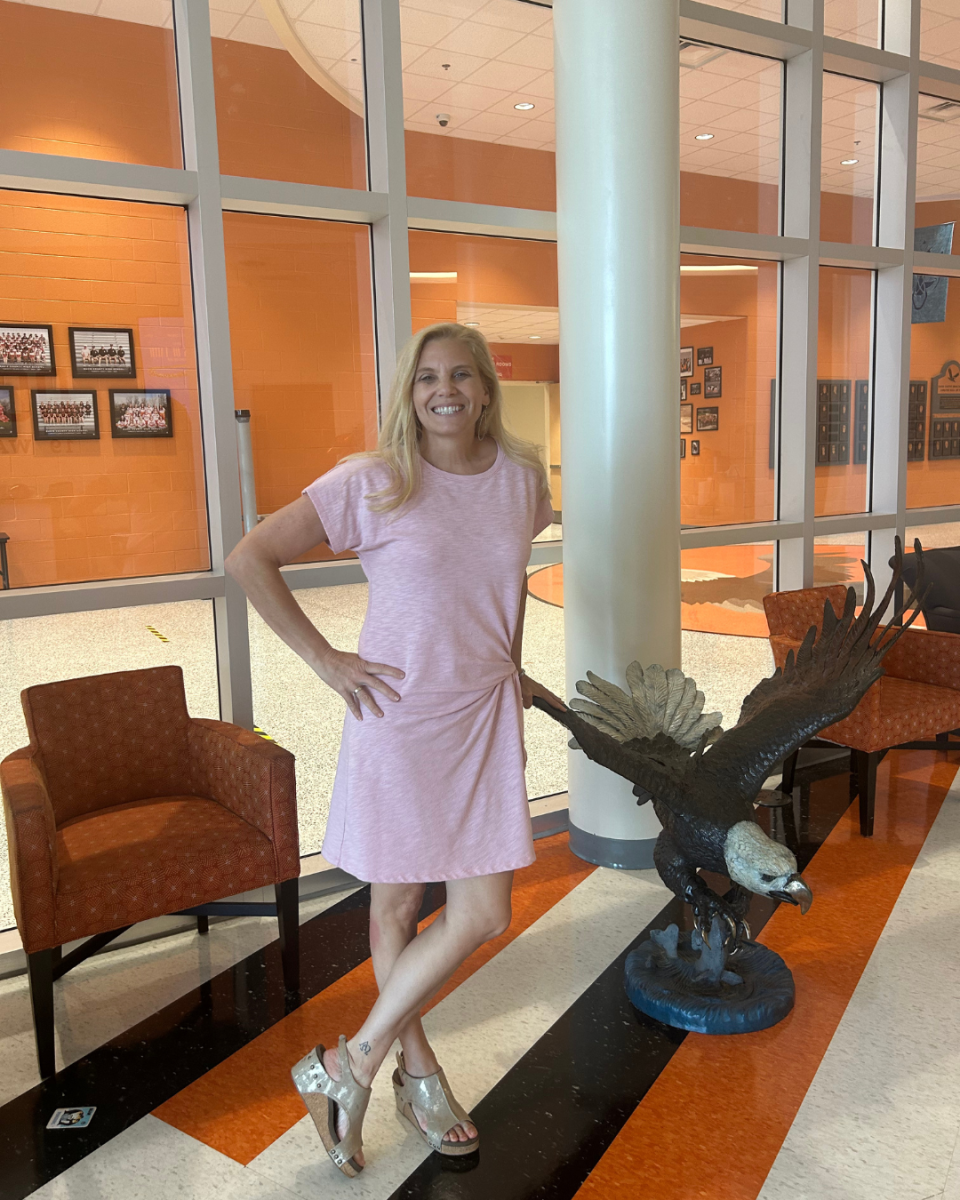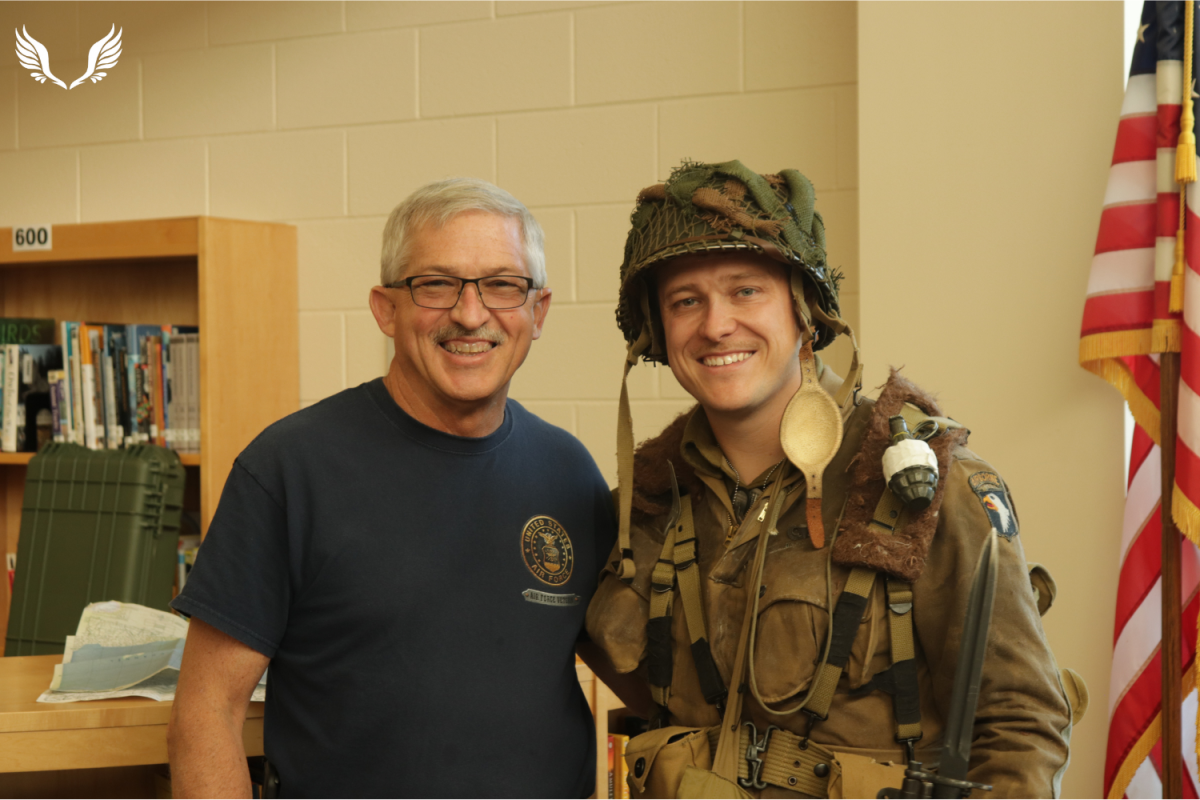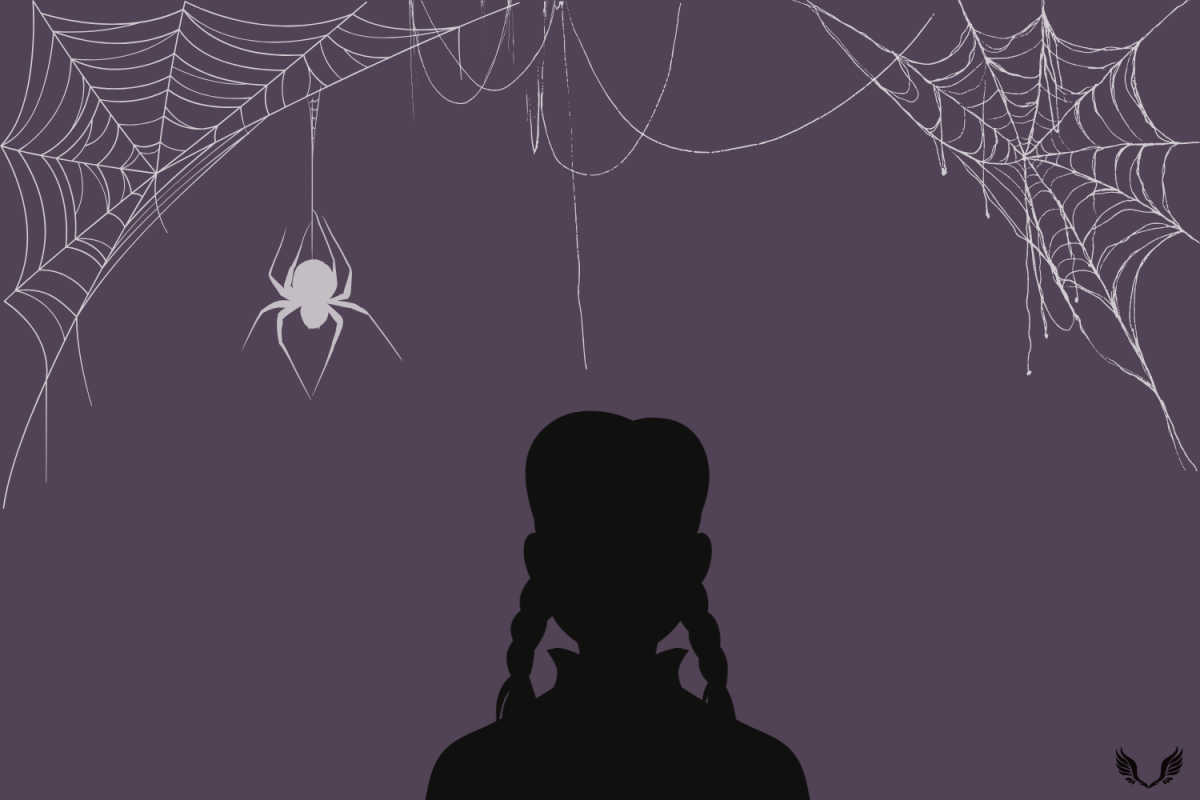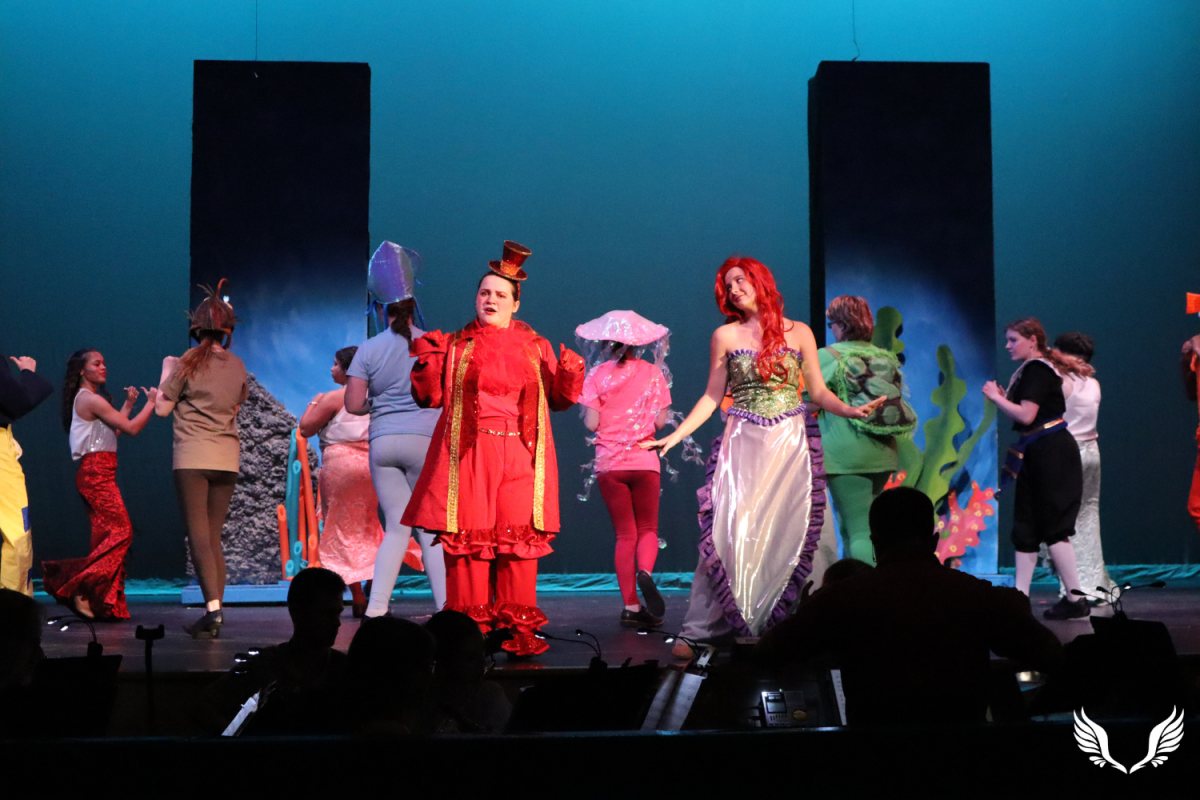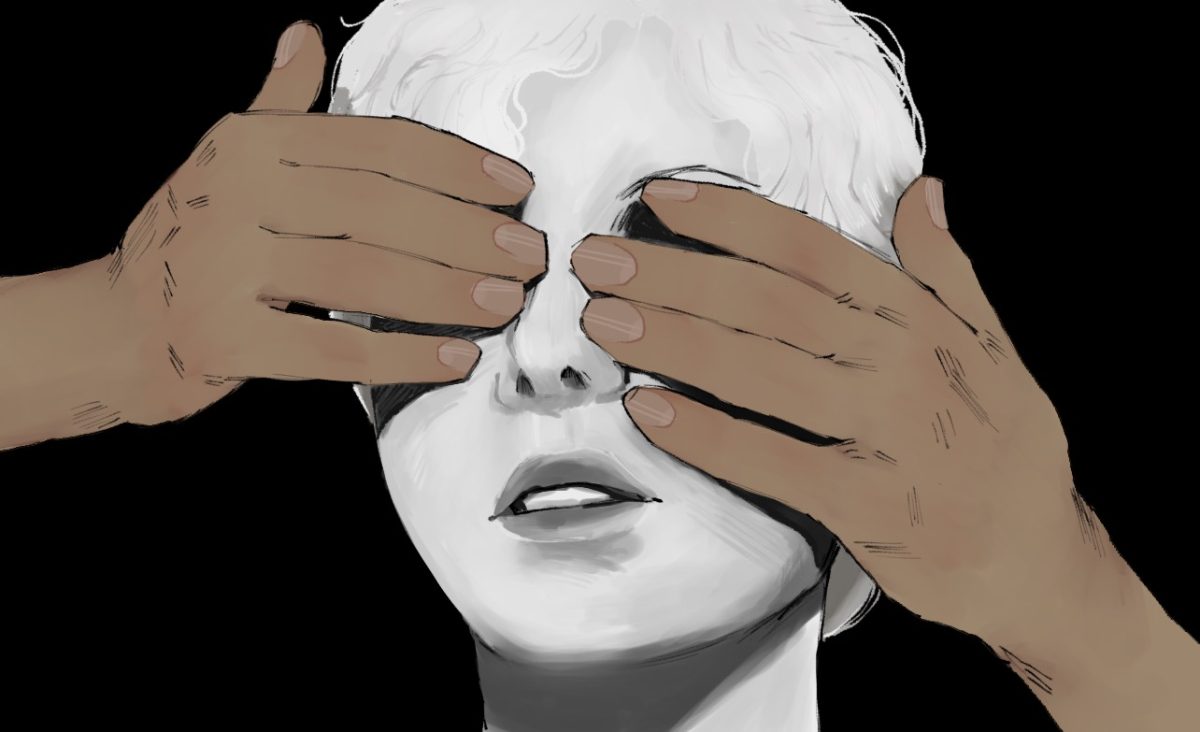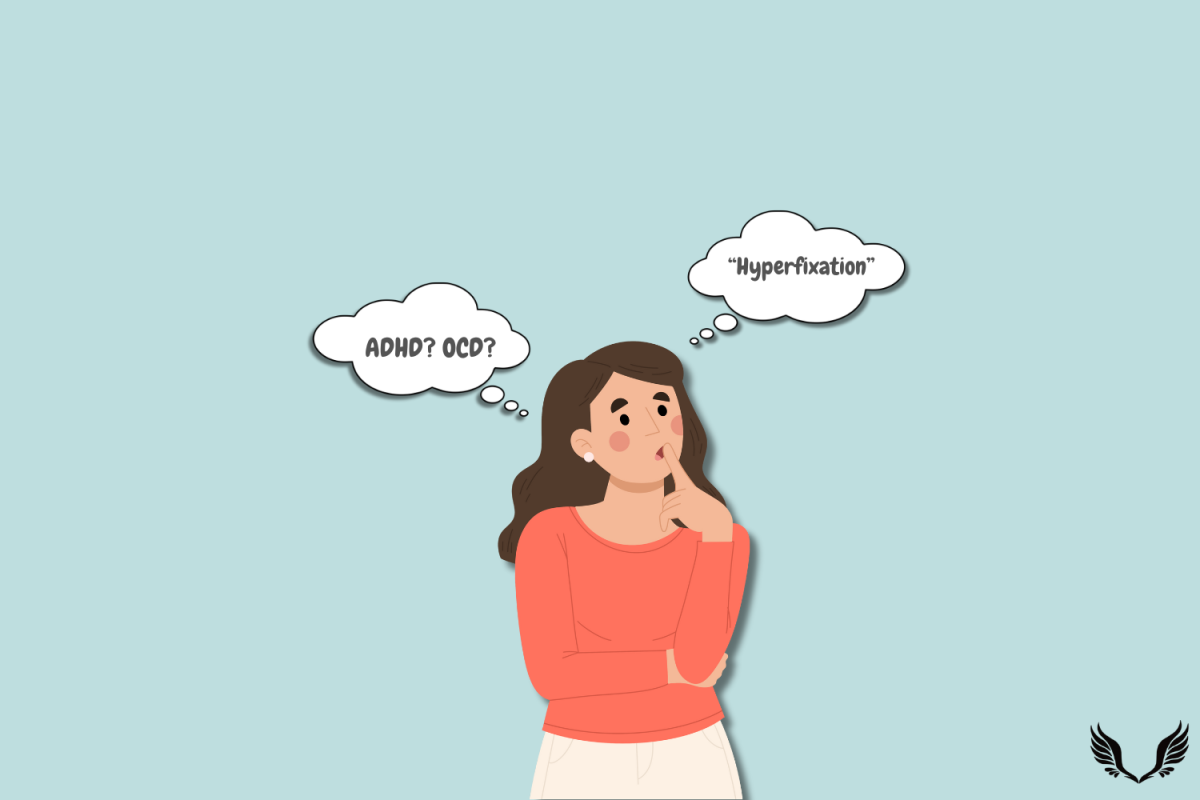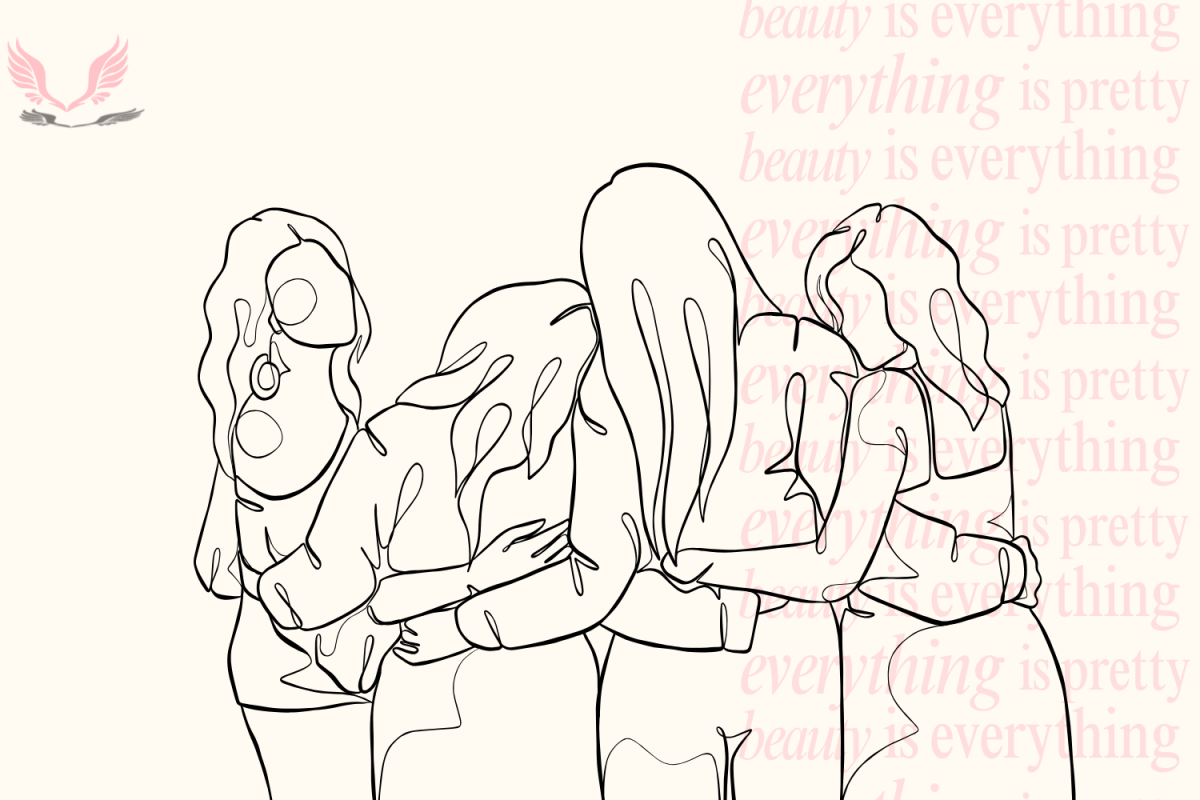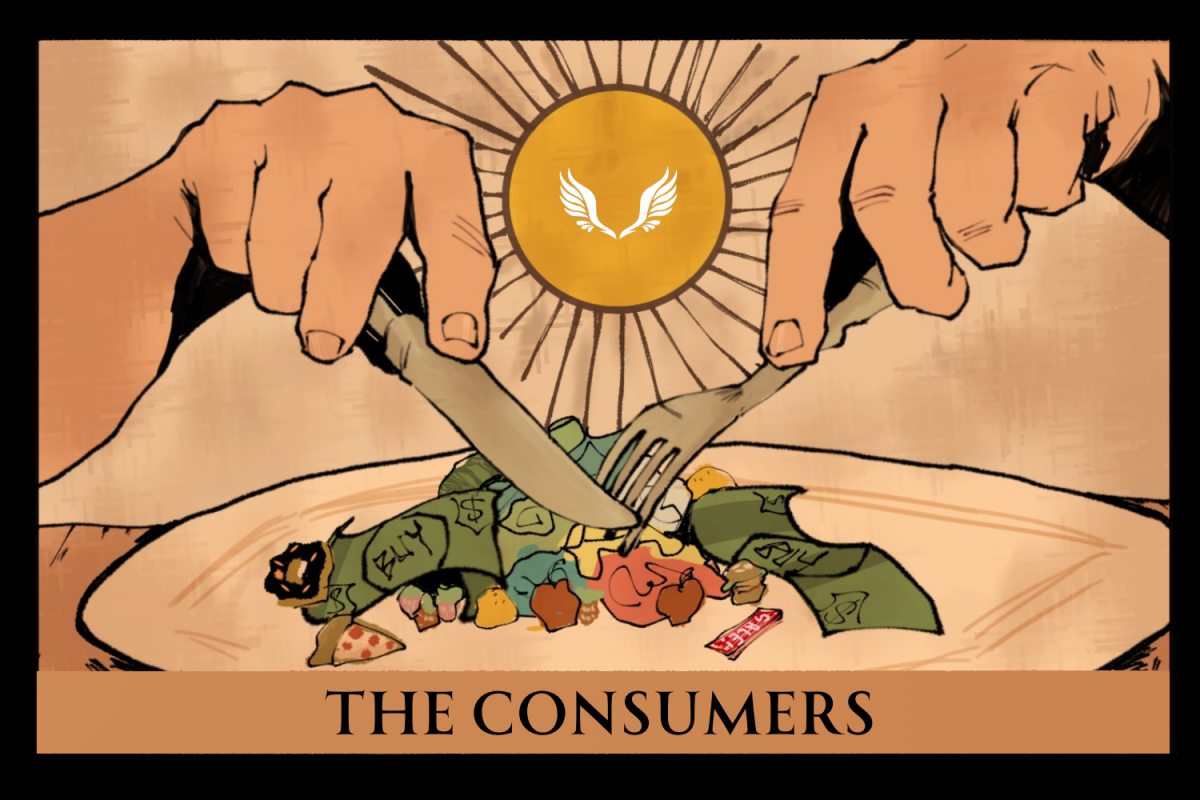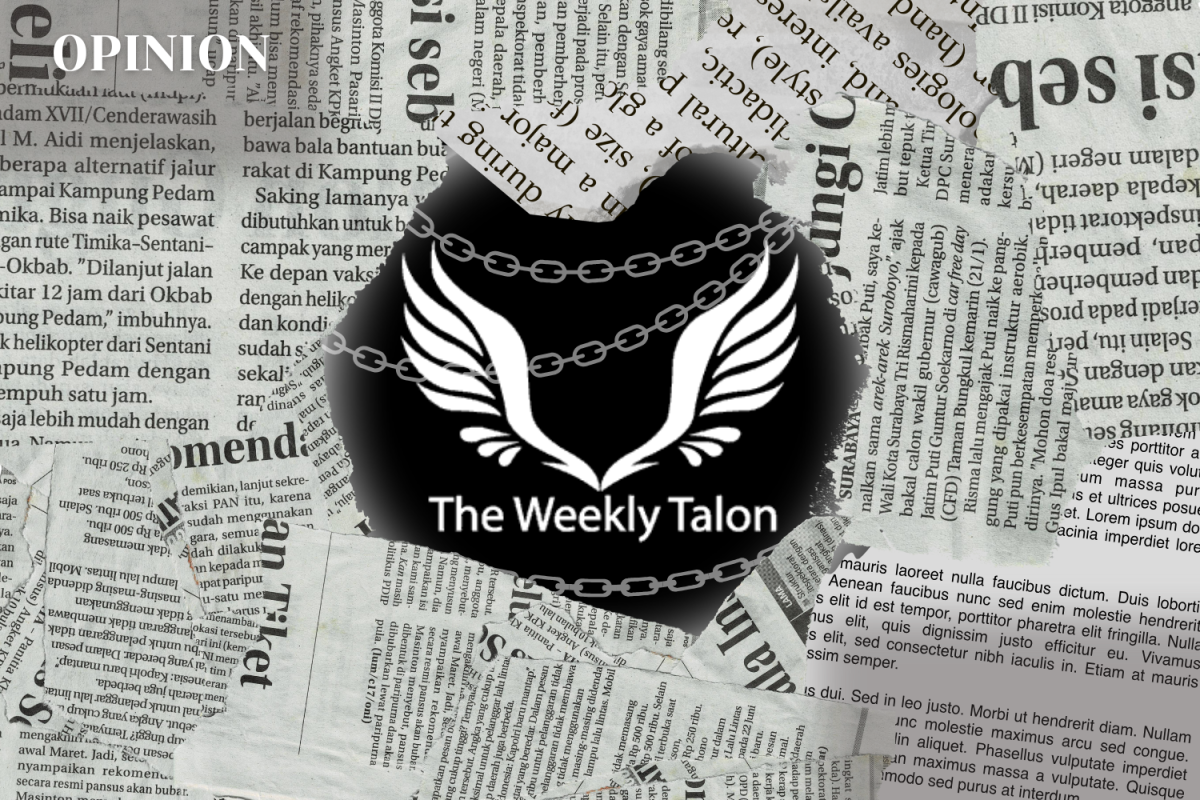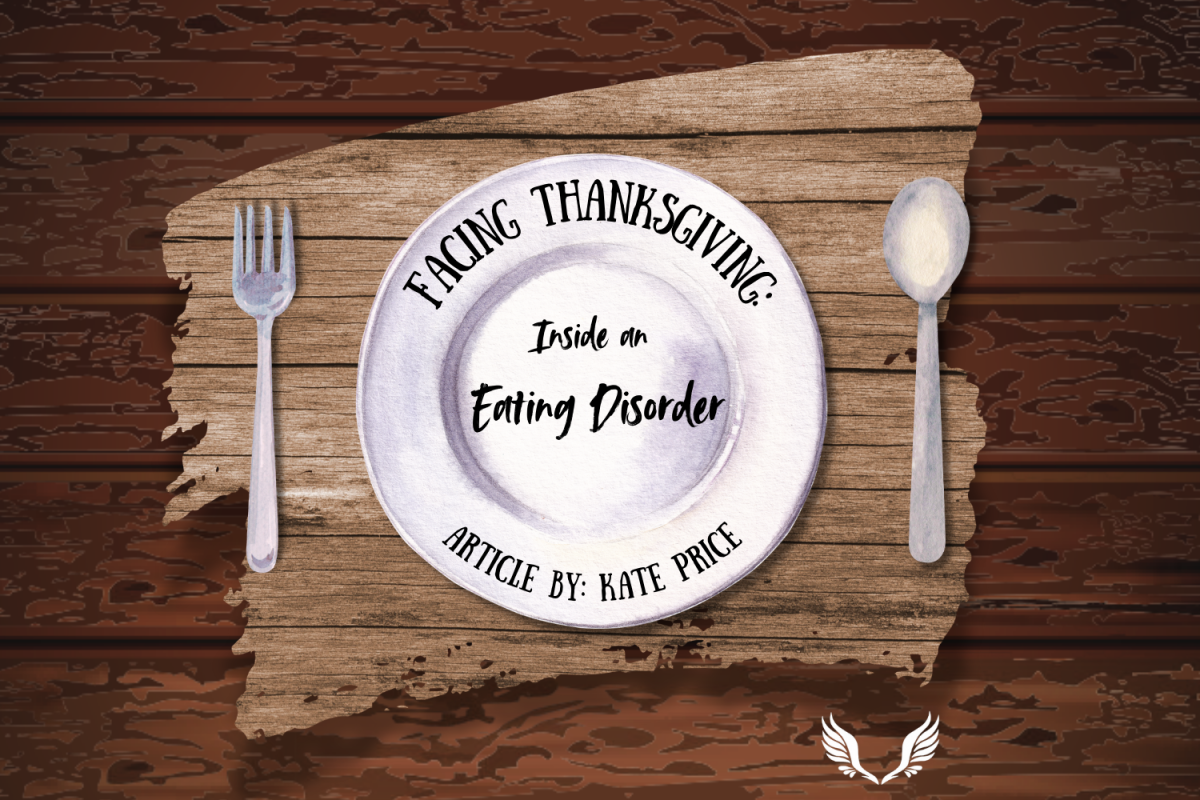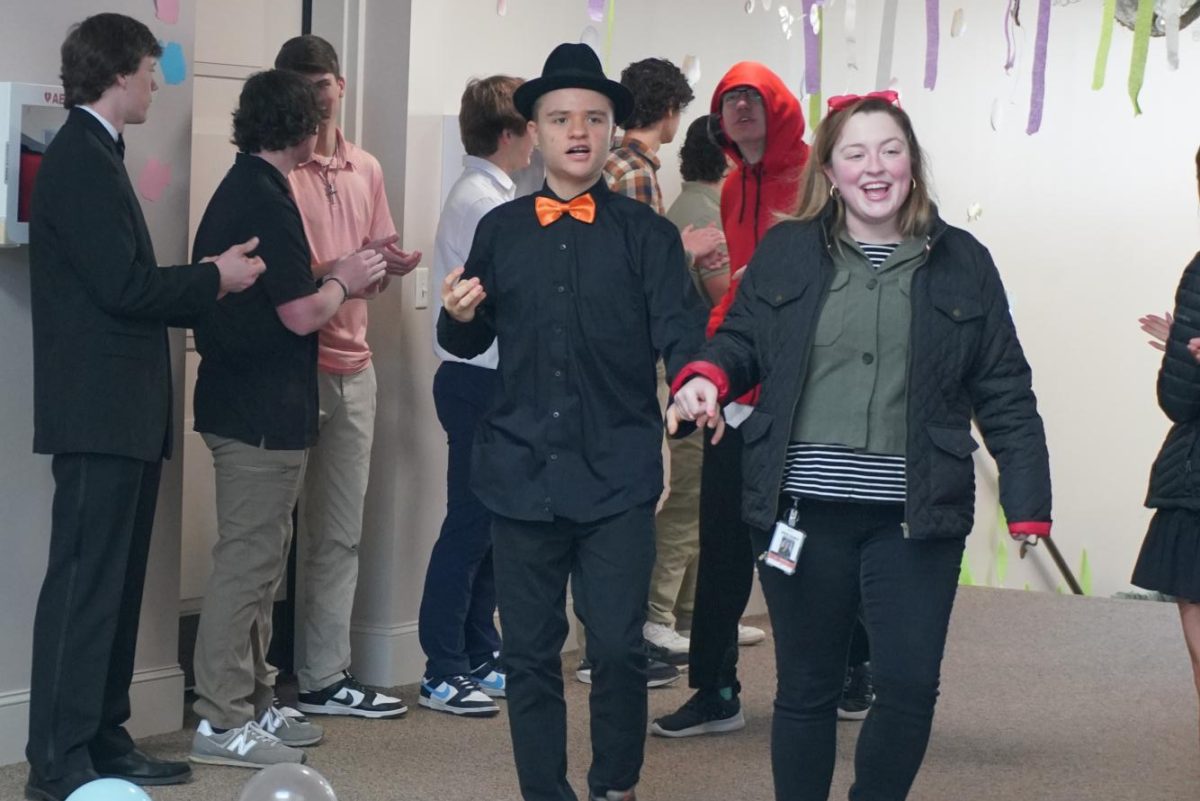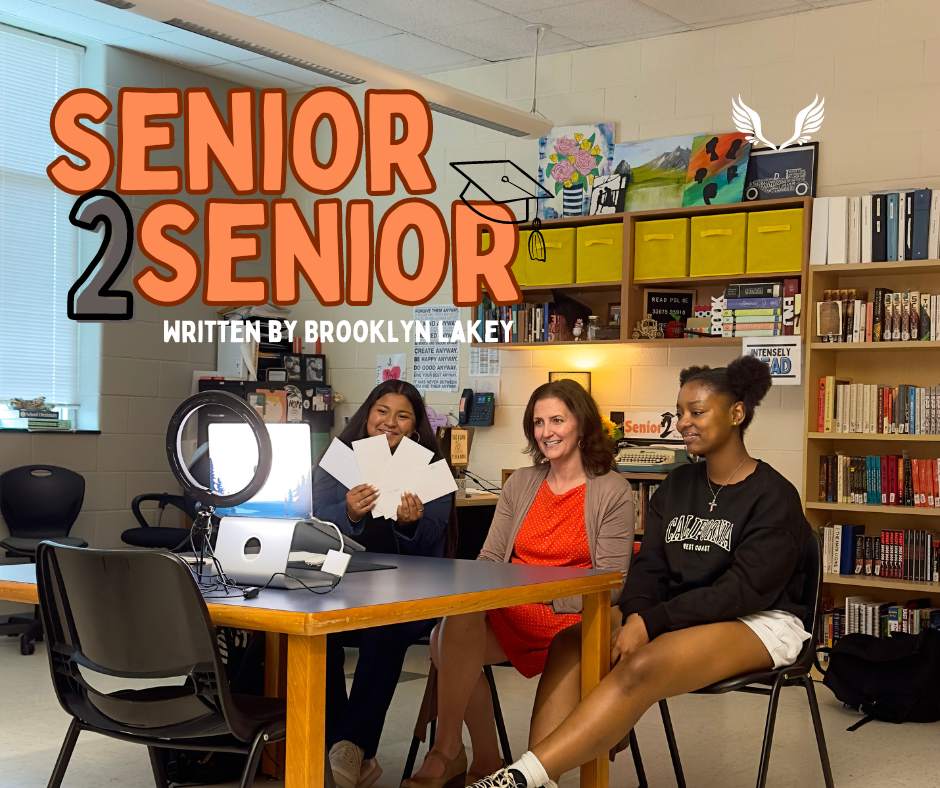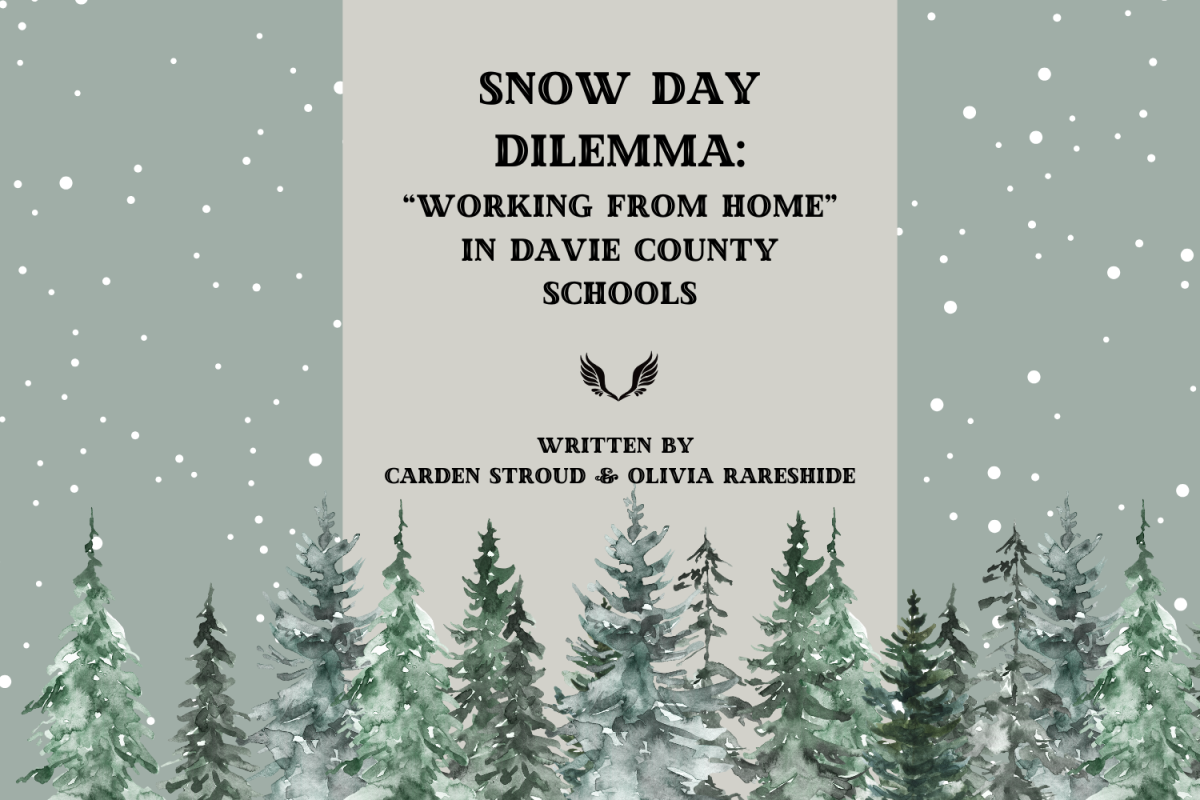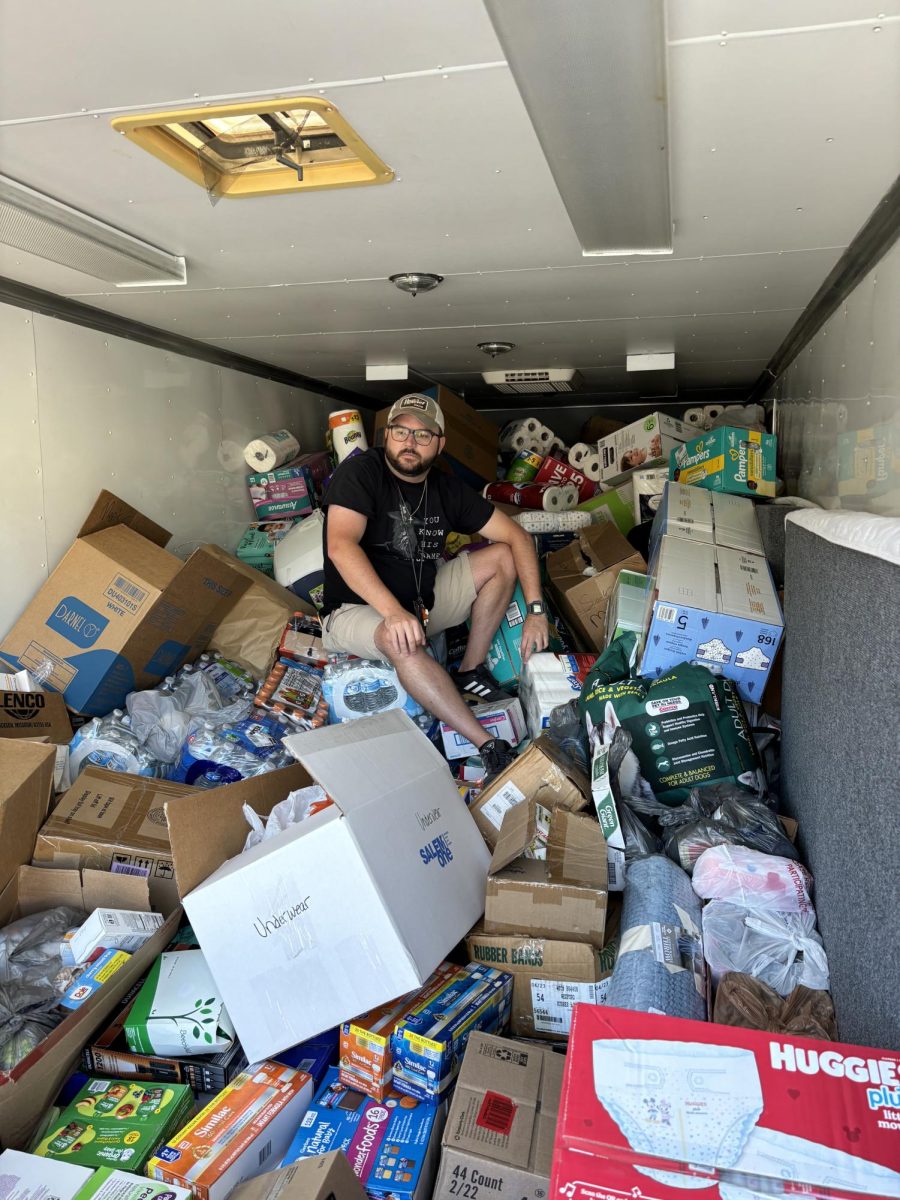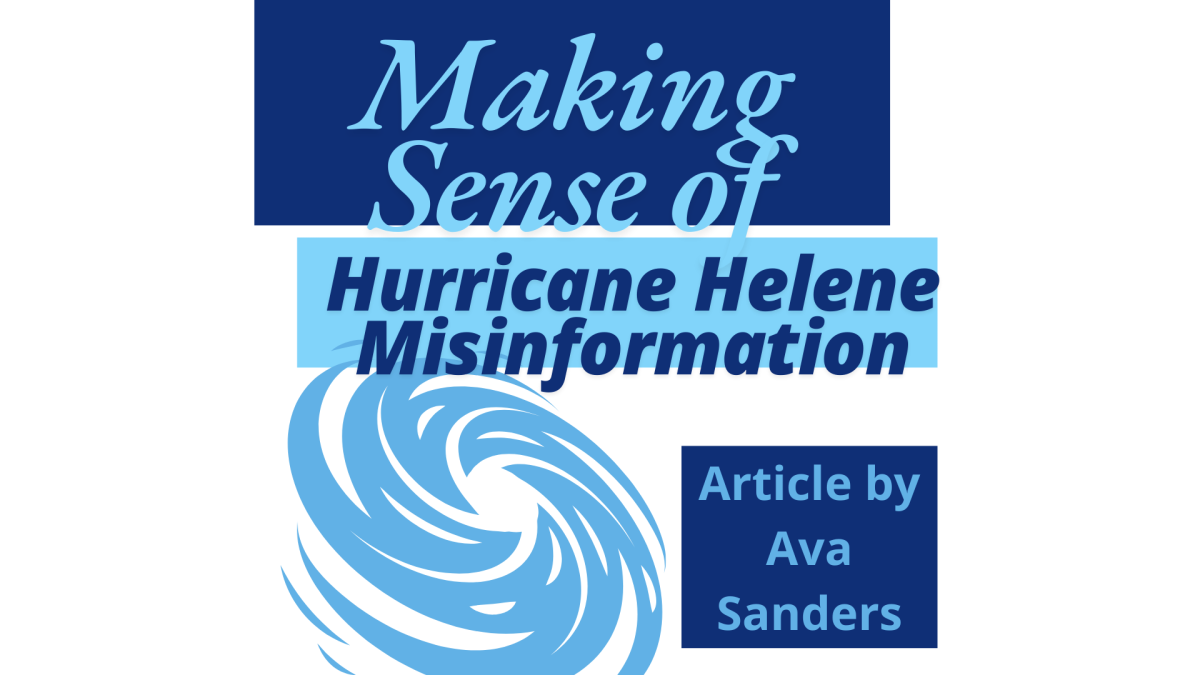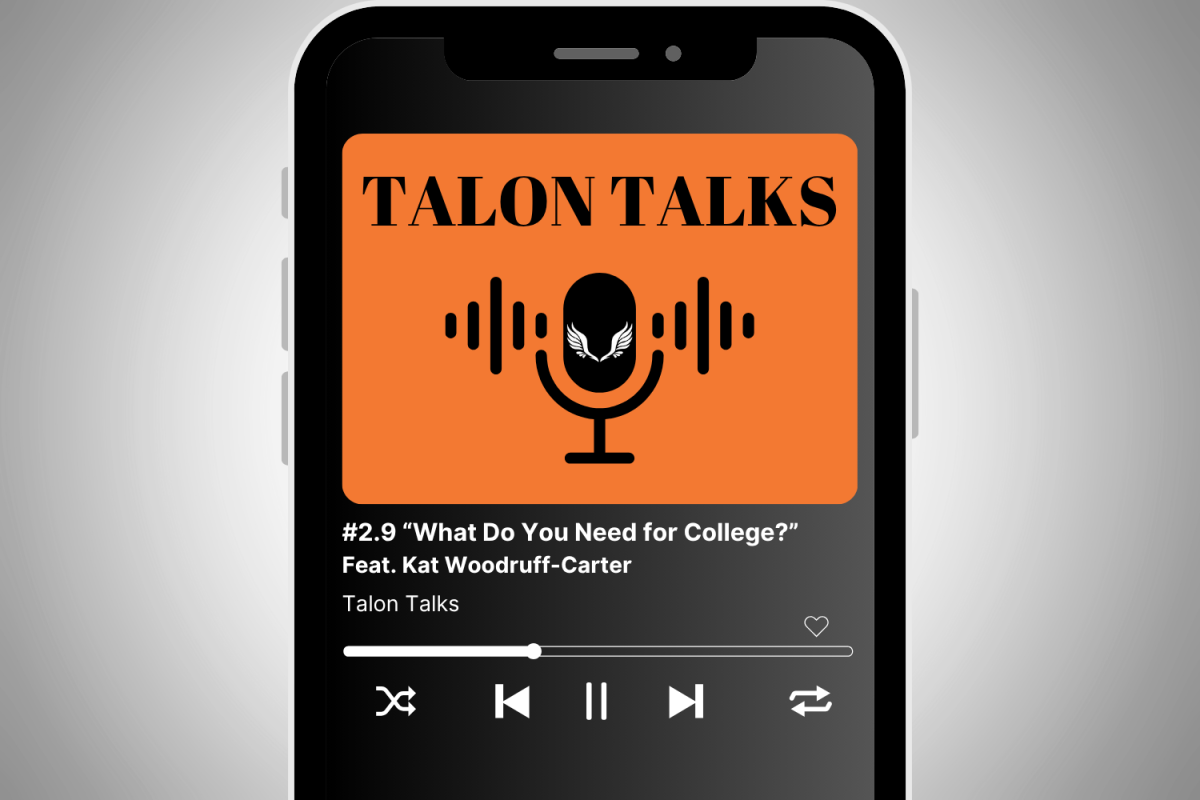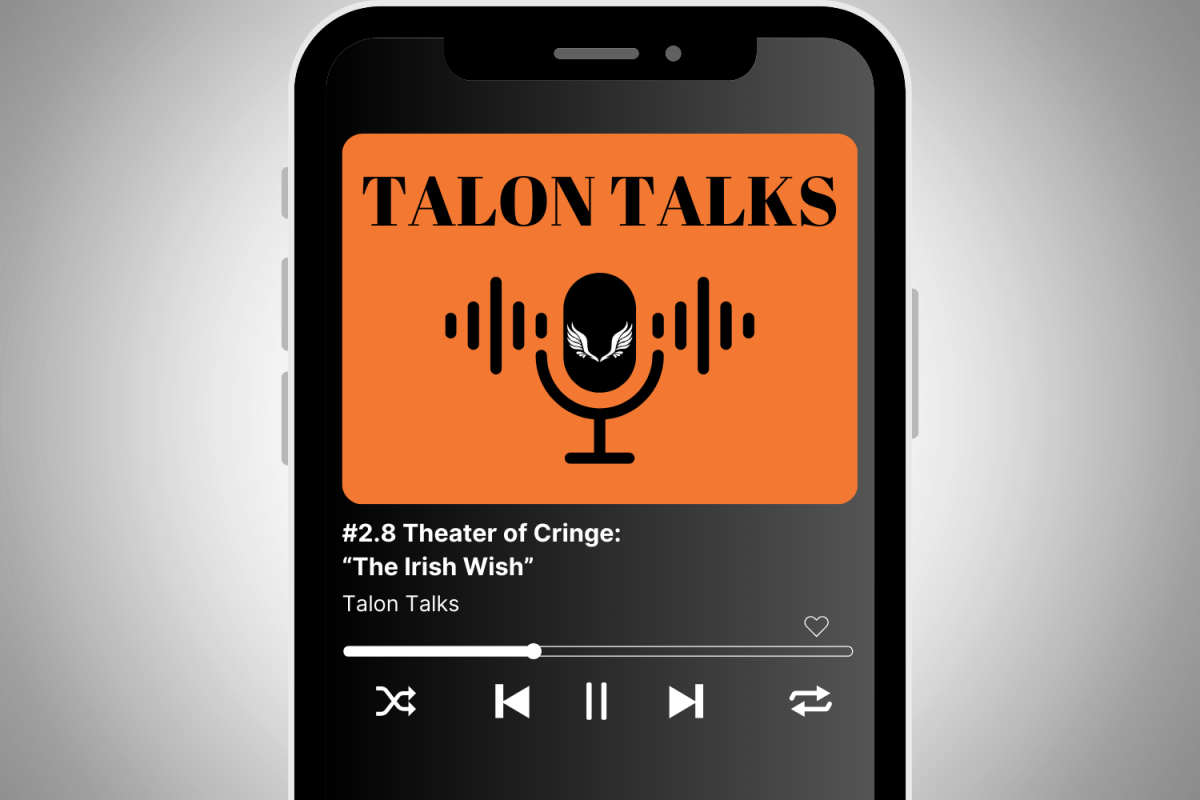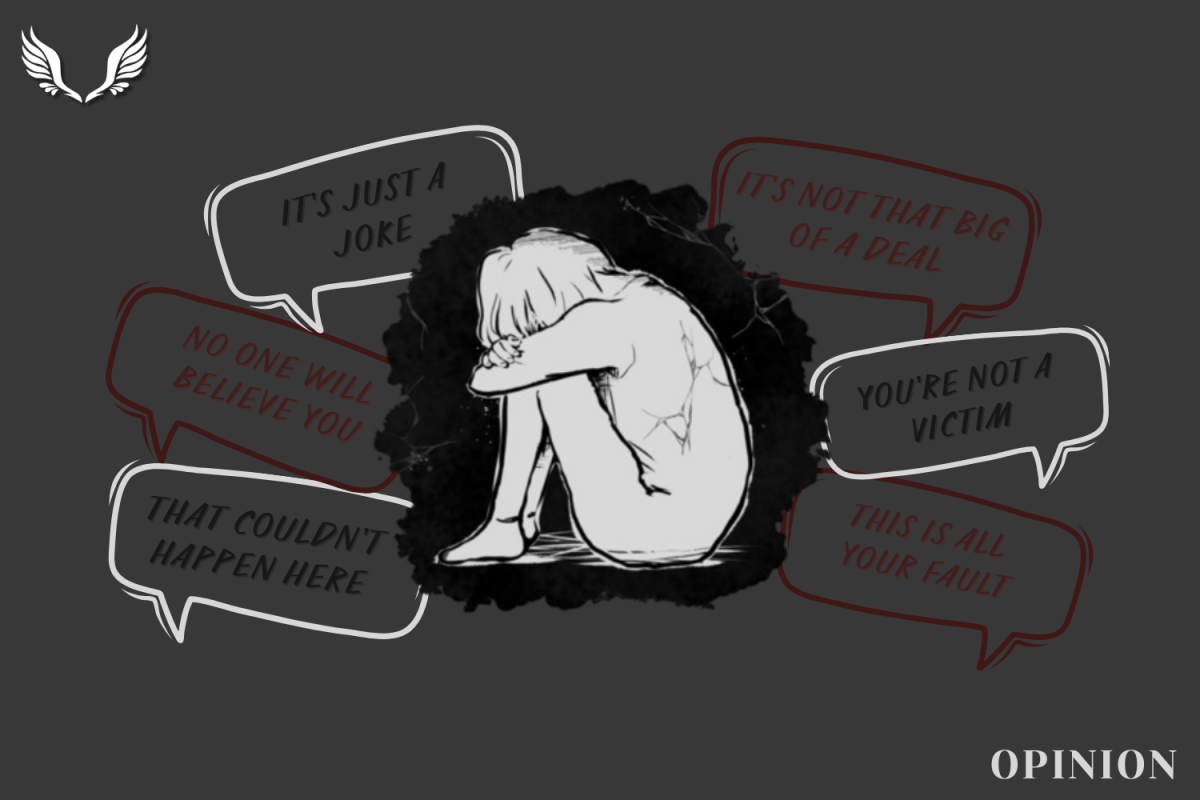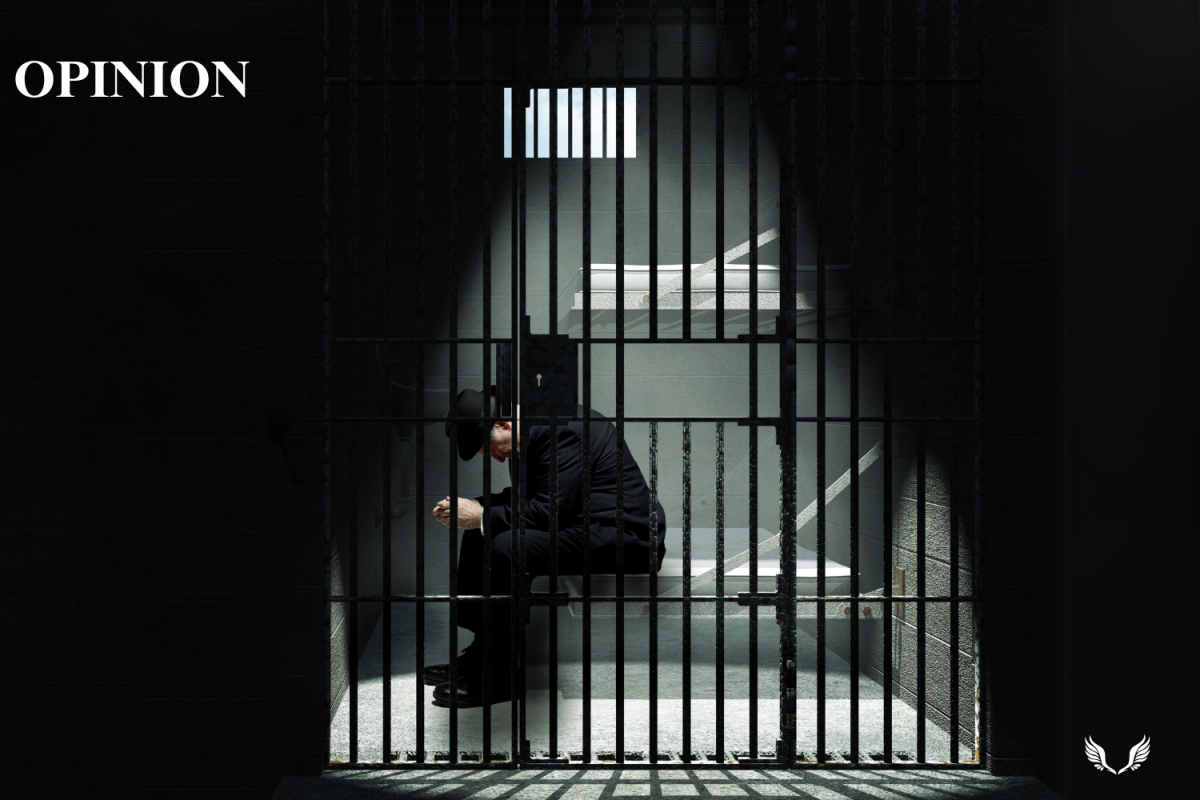Alex loves listening to music, so when his favorite teacher, Miss Brooks, asks him to send her his favorite playlist to play in her class, he texts it to her without hesitation. As time goes by, the two begin texting on a regular basis. Miss Brooks asks Alex questions about music, school, his life, and more, leading him to quickly come to view the teacher as a friend. As the exchanges escalate, Miss Brooks starts sending Alex inappropriate pictures, but he doesn’t think it’s an issue. After all, their interactions are only online, so what’s the big deal? Their text conversations continue until one day, Alex’s mom sees their texts and shared pictures and reports Miss Brooks for her actions, ending the abusive interactions before it’s too late.
This story was one of three scenarios described in a series of videos presented to Davie students over the past several weeks. As part of North Carolina’s “Protect Our Students Act,” the videos were designed to increase awareness of the dark reality of inappropriate relationships between students and educators.
Despite the gravity of such an important issue, several DCHS students in each assembly failed to acknowledge the seriousness of the topic, instead choosing to openly joke about, mock, and ignore the warnings against sexual misconduct, grooming, and abuse presented in each video’s story. During the freshman class assembly, for example, several students could be heard saying, “He’s not a victim!” while watching the story of Alex’s abuse at the hands of Miss Brooks, flippantly arguing that because the teacher was “hot,” Alex was “lucky” to be involved.
Although these kinds of reactions may be written off as jokes or average teenage behavior, such immature behavior takes away from the message of the presentation as well as the real experiences of victims of sexual abuse. Unfortunately, these responses come at a time when combating the issue of sexual abuse in school settings is becoming increasingly important, especially in Davie County. On April 2, WXII 12 reported on a recent instance of a Davie County Schools teacher who resigned from their position because of an alleged “inappropriate interaction” between themselves and a student. While district officials provided the news outlet with no further information, they did acknowledge the investigation is still ongoing. Regardless of the lack of definite details, the impact of this event remains the same.
This event shows that sexual misconduct is not an avoidable or unimportant issue—it is happening here. There are students around our state, county, and school who have experienced misconduct or abuse at the hands of an educator, partner, family member, or other individual. Regardless of the intentions behind ignorant comments like those made during the presentation, making jokes about such a serious issue dismisses and disrespects the experiences of real victims, isolating and discouraging them from speaking out, thus allowing abuse to continue.
What is the “Protect Our Students Act”?
Ironically, preventing these kinds of uninformed and immature responses to sexual abuse was one of the issues the Protect Our Students Act hoped to combat. Formally known as House Bill 142, this piece of legislation was designed to increase penalties for and understanding of inappropriate relations between students and educators, decreasing the rate of sexual misconduct in educational settings.
The bill was signed into law by former Governor Roy Cooper on October 2, 2023. Earlier that year, former State Superintendent Catherine Truitt testified before the state General Assembly regarding the issue of sexual misconduct in schools.
“The overwhelming majority of teachers will never come anywhere close to violating the rights of students,” she told legislators, “But I firmly believe that one violation is too many, and I believe that we can do more to ensure our schools remain safe for students to learn and grow.”
Truitt stated that between January 2016 and October 2022, there were 124 cases of misconduct with students that resulted in the restriction or suspension of a teacher’s license, as well as an additional 50 cases of misconduct still under investigation or pending charges. She also called attention to the cause of many of these misconduct cases: sexual grooming.
“High school students tend to think it’s kind of cool when their adult teacher is paying attention to them. And then before they know it, the situation is something they cannot handle,” Truitt explained. “Students should be empowered to recognize when an adult crosses the line.”
This testimony helped prompt the creation of the Protect Our Students Act, which passed later in the year. At the start of a committee meeting regarding the bill, Representative John Torbett, a Republican from Gaston County, remarked, “It’s not a happy bill by any means. But I think … it would be for the betterment not only for kids in our schools right now, but for the future of North Carolina children in education.”
According to a press release from the NC Department of Public Instruction, “The Protect Our Students Act has three components: standardizing definitions and increasing penalties for sexual misconduct committed by any educator, increasing penalties for those failing to report misconduct and producing an age-appropriate awareness video for students grades 6-12.”
The first component, increasing penalties for sexual misconduct, raises the offense for educators who engage in inappropriate activities with a student to a Class G felony, the same class as crimes like common-law robbery. The official wording of the bill states, “If a defendant, who is a teacher, school administrator, student teacher, school safety officer, or coach, at any age, or who is other school personnel, and who is at least four years older than the victim engages in vaginal intercourse or a sexual act with a victim who is a student, at any time during or after the time the defendant and victim were present together in the same school, but before the victim ceases to be a student, the defendant is guilty of a Class G felony.”
This same outline applies to sexual misconduct cases involving an educator taking “indecent liberties” with a student. According to the bill, this refers to “Willfully taking or attempting to take any immoral, improper, or indecent liberties with a student for the purpose of arousing or gratifying sexual desire.” or “Willfully committing or attempting to commit any lewd or lascivious act upon or with the body or any part or member of the body of a student.”
In this same vein, the second component of the Protect Our Students Act increases penalties for those who fail to report cases of misconduct towards children. This component requires that administrators report occurrences of misconduct with or harm to students. Failure to report these violations will result in a charge of a Class I felony.
The third and final component of the act required the creation of the age-appropriate videos watched by DCHS students and staff, presenting information regarding child abuse, inappropriate behavior between students and educators, and sexual misconduct. Produced by the Center for Safer Schools, these videos must be played by all public middle and high schools in North Carolina.
What is in the Videos?
The Center for Safer Schools produced three videos as a part of the act, each detailing unique scenarios where students were victims of misconduct.
The first video centered around a student named Brianna, an avid basketball player. Her coach offers her private lessons after school, and during the lessons, he talks with her frequently and wants to get to know her. Her coach starts to make comments about how pretty she is, and Brianna doesn’t seem to think it’s a big deal until he starts to touch her. Brianna is scared and confused; she doesn’t know what to do about her situation. Thankfully, a janitor cleaning up during the lesson saw the ordeal and reported it, leading her coach to be fired for misconduct. According to the ending of the video, this scenario was used to show that adult offenders are often well-accepted and likeable people, and offenders often target victims one-on-one to have greater power.
The second video centered around the situation described earlier, where a student, Alex, was a victim of misconduct by his teacher, Miss Brooks, in the form of texting and exchanging inappropriate images. The purpose of this scenario was to inform students about inappropriate interactions with teachers online; most offenders slowly push boundaries and build patterns to condition and groom kids.
The third and final video told the story of Taylor, a quiet student who doesn’t have many friends. Her math teacher notices her loneliness and provides her with a sense of friendship, buying her gifts, paying for her lunch, and offering Taylor a position as his teacher’s assistant. The teacher’s grooming starts to take a toll on Taylor’s mental health, and when her teacher is discovered for his misconduct, he is fired from the school. However, the video ends with Taylor wondering where he went next, and the teacher is shown in a new job at a different school, where he begins connecting with a student in the same way he took advantage of Taylor. This last video discussed how offenders often target vulnerable populations because the offender holds more power and how sudden behavioral changes can be a warning sign of abuse.
In addition to these videos, students also viewed a short presentation that detailed how to identify and report misconduct. Students were encouraged to trust their instincts and speak up if they noticed signs of abuse but were also warned of the serious consequences of issuing false reports. Students were also told to use the state Say Something app or Davie County School’s anonymous hotline if they had information regarding misconduct, abuse, or other dangerous situations involving students or staff.
Why Does This Matter?
As discussed earlier, conversations around recognizing, reporting, and reacting to sexual abuse are needed now more than ever, not just at Davie High but in schools and communities worldwide. The Protect Our Students Act is one step towards combating sexual abuse, but no real change can be made unless everyone, students in particular, truly recognizes the importance of the issue.
The immature reactions of some Davie students reflect a wider trend in disrespectful or unserious attitudes towards abuse and other major issues, but this does not have to be the case. It is time to recognize that our words have power. This power can serve either to diminish, demean, and destroy, or to compassionately encourage and offer support. It is up to us whether we will recognize the message of the Protect Our Students Act and stand with victims of abuse or respond with jokes and flippant remarks that diminish the experiences of others.
Let the recent instance of alleged inappropriate behavior within our community not be a subject of rumor or mockery but a call to action. As students, we have the power to foster a school environment of kindness, maturity, and respect. It is up to us to use our words not to isolate but to empower.
It is time to choose compassion.

